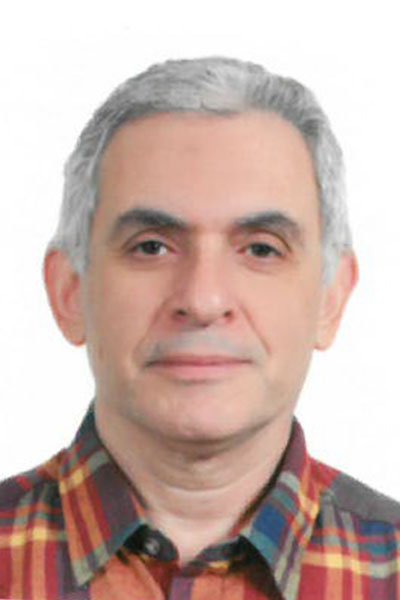
Bio
Mahmoud Araissi is an associate professor of finance at the Adnan Kassar School of Business. He holds a PhD in economics from Indiana University and he has a mixed background in both economics and finance with a BA from the American University of Beirut and an MA from the University of Chicago. He has been a certified Islamic finance executive (CIFE) from the ETHICA Institute of Islamic Finance since 2018. He has extensively researched MENA countries finance and growth in the wake of the Arab Spring, as well as corporate governance, gender and performance in firms. He is currently working on growth volatility spillovers across countries and the oil and political conflicts in MENA.
Teaching Interests
- Money and Banking
- Security Analysis
- Financial Management
- Financial Institutions
- Insurance
- Corporate Finance
Research Interests
- Finance-Growth Nexus
- International Financial Risk Management
- Banking Regulation
- Globalization & Investment Opportunities
- Corporate Governance
Executive Training
Araissi offered numerous seminars and workshops including Islamic finance and investing, working capital management, measuring the Value of life, measuring the value of corporate reputation, globalization and investment opportunities, as well as banking profitability and financial ratio analysis.
Consulting Activities
Consultant for U.N., Economic and Social Commission for Western Asia, Beirut from Nov. 2003- May, 2004. Research contributed to the Survey of Economic and Social Developments in the ESCWA Region 2003-2004 and to the Executive Summary of the same survey.
Retained consultant for International Monetary Fund, Washington DC from May, 1990 - Dec., 1990.
Selected Publications
Arayssi, M. and Yassine, N. (2024). International price earnings and country risk model in an Asian context, Journal of Asia Business Studies, 18(1): 124-135.
Arayssi, M. and Jizi, M. (2024). Royal family board directors and the level of ESG disclosures in GCC listed firms. Journal of Accounting & Organizational Change, 20(1), 58-83.
Arayssi, M. (2023). Reframing Sustainable Finance: case of Lebanon, Economic Research Forum (ERF) ( https://theforum.erf.org.eg/2023/07/24/reframing-sustainable-finance-lessons-from-lebanon/)
Arayssi, M., Fakih, A. and Haimoun, N. (2023). Skill Mismatch, Nepotism, Job Satisfaction, and Young Females in the MENA Region, Econometrics, 11(2): 16.
Arayssi, M. and Jizi, M. (2023) Royal family board directors and the level of ESG disclosures in GCC listed firms. Journal of Accounting & Organizational Change , 20(1), 58-83. (https://doi.org/10.1108/JAOC-08-2022-0123).
Kouatli I., Arayssi M. (2022) A Fuzzimetric Predictive Analytics Model to Reduce Emotional Stock Trading. In: Kahraman C., Cebi S., Cevik Onar S., Oztaysi B., Tolga A.C., Sari I.U. (eds) Intelligent and Fuzzy Techniques for Emerging Conditions and Digital Transformation. INFUS 2021. Lecture Notes in Networks and Systems, vol 308. Springer, Cham. https://doi.org/10.1007/978-3-030-85577-2_57
Abosedra, S., Arayssi, M., Sita, B. B., & Mutshinda, C. (2020). Exploring GDP growth volatility spillovers across countries. Economic Modelling, 89: 577-89.
Arayssi, M., Jizi, M. & Tabaja, H. (2020). ‘The Impact of Board Composition on the Level of ESG Disclosures in GCC Countries’, Sustainability Accounting, Management and Policy Journal, 11 (1), 137–161. https://www.emerald.com/insight/content/doi/10.1108/SAMPJ-05-2018-0136/full/html
Arayssi, M. and Jizi, M. (2019). ‘Does Corporate Governance Spillover Firm Performance? A study of valuation of MENA companies’, Social Responsibility Journal, 15(5): 597-620.
Arayssi, M., Fakih, A., and Haimoun, N. (2019). ‘Did the Arab Spring reduce MENA countries’ growth?’, Applied Economics Letters, 1-7.
Arayssi, M., Fakih, A. and Kassem, M. (2018). ‘Government and Financial Institutional Determinants of Development in MENA Countries’, Emerging Markets, Finance and Trade, forthcoming. https://www.tandfonline.com/eprint/uMn444x9VGEp3EEXgKGv/full
Arayssi, M. and A. Fakih. (2017). Finance-Growth Nexus in a Changing Political Region: How Important was the Arab Spring?, Economic Analysis and Policy, 55 : 106-123. http://dx.doi.org/10.1016/j.eap.2017.05.001
Arayssi, M. and A. Fakih. (2017). The Finance-Growth Nexus, Again: New Evidence from Kenya, Economic Issues, 22(2): 33-59.
Arayssi, M., Dah, M., and Jizi, M. (2016). Women on boards, sustainability reporting and firm performance, Sustainability Accounting, Management and Policy Journal, 7(3) : 376-401 . http://dx.doi.org/10.1108/SAMPJ-07-2015-0055
Arayssi, M. (2015). The Effect of Private Investments on Banks’ Capital Requirements, The European Journal of Finance, 22(15): 1580-1595. http://dx.doi.org/10.1080/1351847X.2015.1049283
Arayssi, M. (2015). Transparent Rules for Deposing Central Bankers. International Review of Economics and Finance, 38, 1-17.
Arayssi, M. & Fakih, A. (2015). Institutions and Development in MENA Region: Evidence from the Manufacturing Sector. International Journal of Social Economics, 42(8), 717 - 732. http://dx.doi.org/10.1108/IJSE-07-2014-0136
Arayssi, M. & Yassin, N. (2014). Short-Term Financing of Economic Order Quantity Inventory Model with Probabilistic Quality. Journal of Modern Accounting and Auditing, 10(7), 793-802.
Arayssi, M. (2014). Price Drivers and Investment Strategies in Gold. The Business Review Cambridge, 22(1), 87-92.
Arayssi, M. (2012). Investing in Gold: What to Expect? Available at SSRN: http://ssrn.com/abstract=2122399
Arayssi, M. (2012). Nominal Income and Inflation Targeting. The Business Review Cambridge, 20(2), 143-148.
ElFakhani, S., Arayssi, M., & Smahta, H. (2008). Globalization and Investment Opportunities: a co-integration of Arab, US and Emerging Stock Markets. Financial Review, 43(4), 591-611.
Khoury, S. & Arayssi, M. (2008). The Value of Life: A Labor-Based Theory. Journal of Business Valuation and Economic Loss Analysis,3(1).
Arayssi, M., Khoury, S. & Uwayda, R. (2006). The Value of Life: A New Labor-theory Based Model. Journal of Business Valuation and Economic Loss Analysis,1(1).